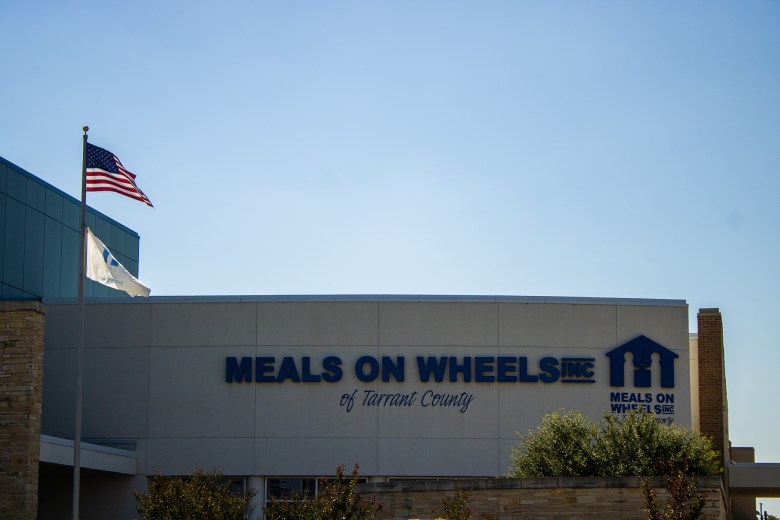Guardianship Services Inc.’s 2025 mirrors that of many nonprofits.
Over the last year, federal funding cuts led to the tightening of many purse strings. In North Texas, nonprofits lost an estimated $127 million in the first half of 2025, most coming from federal cuts.
But for nonprofits in the health and wellness sector, cuts impact more than the philanthropic work of the organization. Clients of these businesses often rely on the services that are now in jeopardy for survival. As is the case nationwide, Tarrant County nonprofits in the health industry are adapting to the unstable landscape while attempting to maintain services for their patients.
“Personally, one of the hardest parts is, working in a nonprofit, you have to be optimistic that we can make a difference, that we can make the world a better place,” said Lyn Scott, executive director of Guardianship Services Inc. “And that’s very difficult in 2025.”
Scott’s nonprofit is one of the smaller ones in Tarrant County. Guardianship Services, which employs less than 30, helps older adults and people who have cognitive difficulties with financial services and housing education.
Despite the web of funding cuts begun earlier this year, Scott said Guardianship Services Inc. wasn’t measurably affected. Funding streams were paused now and again, but none of the sources was permanently canceled.
Like many organizations working in the senior space, Guardianship Services receives funds allocated by the Older Americans Act to help older adults remain safe and independent in their own homes. The Tarrant County-based nonprofit received $265,000 last year under the law.
That all came to a head in mid-September, when the nonprofit found 40% of their allocation was cut.
The money flowed from Texas Health and Human Services through the Area Agency on Aging of Tarrant County, but the funds stem from Washington, D.C., Scott said.
“I knew it was possible — we all watch the news — but it was more significant than I imagined,” Scott said.
Despite losing over $100,000, Guardianship Services is determined not to let it affect services. Patients have been triaged and new referrals have been paused, but even with the current instability caused by the government shutdown, Scott said her team is continuing to work to support patients.
“The clients would have a difficult time understanding if we said, ‘I’m sorry, we can no longer work with you,’” Scott said. “Because of the potential negative effects that would have on their lives, we have chosen to see what we can do to continue serving the ones that we have in our care.”
A wait and see game
Out of the over 45,000 nonprofits in North Texas, nearly 13,000 — or 27.7% — are in the health or human services sectors, according to the North Texas Nonprofit Institute.
For many of them, the year has been defined by instability and a game of wait and see.
Meals On Wheels of Tarrant County is one of the organizations experiencing uncertainty. In October 2024, the nonprofit saw COVID-19 pandemic-era money — federal funding the nonprofit had relied on — end and financial support drop to pre-pandemic levels.
 Meals on Wheels of Tarrant County’s main facility in Haltom City stands on Oct. 2, 2025. (Ismael M. Belkoura | Fort Worth Report)
Meals on Wheels of Tarrant County’s main facility in Haltom City stands on Oct. 2, 2025. (Ismael M. Belkoura | Fort Worth Report)
The organization found ways to adapt and streamline its mission. Alissa Deaton, president and CEO of Meals On Wheels of Tarrant County, said in a statement to the Fort Worth Report that the organization cut breakfast deliveries to two times a week.
The concerns continued after President Donald Trump returned to the White House. The Texas Tribune reported that Meals On Wheels of Tarrant County was given short notice in the spring that funding for food would stop.
Those cuts never hardened, but the year has been full of moments like these.
Looking ahead, Deaton said the organization anticipates a reduction in supportive services at some point before the end of the year. Although this doesn’t affect food, other services related to case management and client assistance may be affected. No decision has been made on which supportive services will be affected, said Philip Gonzalez, a Meals On Wheels of Tarrant County spokesperson.
“Flat funding, while better than a cut, still presents challenges in a climate where demand continues to grow and costs for food, fuel and labor keep rising,” Deaton said. “Simply put, holding funding steady does not mean holding services steady.”
A unique year?
Each nonprofit in the health and wellness sector had a different 2025 experience.
In September, the Tarrant Area Food Bank reported it lost $4.2 million in federal funds this year. This is on top of an expected increased demand in November as the SNAP program sees its funding paused due to the government shutdown.
The Recovery Resource Council, which provides behavioral health care to several North Texas counties, lost $700,000 in federal funds in March, CEO Eric Niedermayer said.
“It just feels like a very turbulent time where signed contracts don’t necessarily mean the money is going to be guaranteed to happen,” Niedermayer said.
The Parenting Center, a mental health social services agency, did not say whether any of its funding was cut. Chris Butler, CEO and president of The Parenting Center, said federal funding streams were paused a couple times and that the organization is tightening its budget next year.
Mercy Clinic and North Texas Area Community Health Centers, two Tarrant County-based nonprofits that provide medical services to patients, both said their funding has not been affected. Mercy Clinic executive director Aly Layman told the Report services like early detection screenings and health education programs have been cut because partner organizations that work with Mercy Clinic have been affected by cuts.
Some nonprofit leaders said the year’s instability has been unique.
Ashley Barnes, CEO of Lena Pope, said the Fort Worth-based nonprofit providing child and family services has not been too affected by cuts, but the instability led to the organization creating a “very conservative budget” for next year.
“This particular year, I think the uncertainty within a number of funding streams creates more stressful planning,” she said.
While the year has not been easy, others noted the nonprofit space always carries some unpredictability.
“Being a small nonprofit in Tarrant County, there’s always a level of struggle, and we’re fortunate that we have a really strong nonprofit community,” Butler said.
That community support was the common denominator for the nonprofit leaders who spoke about their experiences in 2025.
“For me personally, it’s helpful to talk to other executive nonprofit leaders, just as confirmation that we’re not in this alone and that we are banding together,” Scott said.
Disclosure: Sonya Cisneros Wierzowiecki, director of development at the Report, serves on the board of Lena Pope. News decisions are made independently of our board members and financial supporters. Read more about our editorial independence policy here.
Ismael M. Belkoura is the health reporter for the Fort Worth Report. Contact him at ismael.belkoura@fortworthreport.org.
At the Fort Worth Report, news decisions are made independently of our board members and financial supporters. Read more about our editorial independence policy here.
Related
Fort Worth Report is certified by the Journalism Trust Initiative for adhering to standards for ethical journalism.
Republish This Story
Republishing is free for noncommercial entities. Commercial entities are prohibited without a licensing agreement. Contact us for details.
